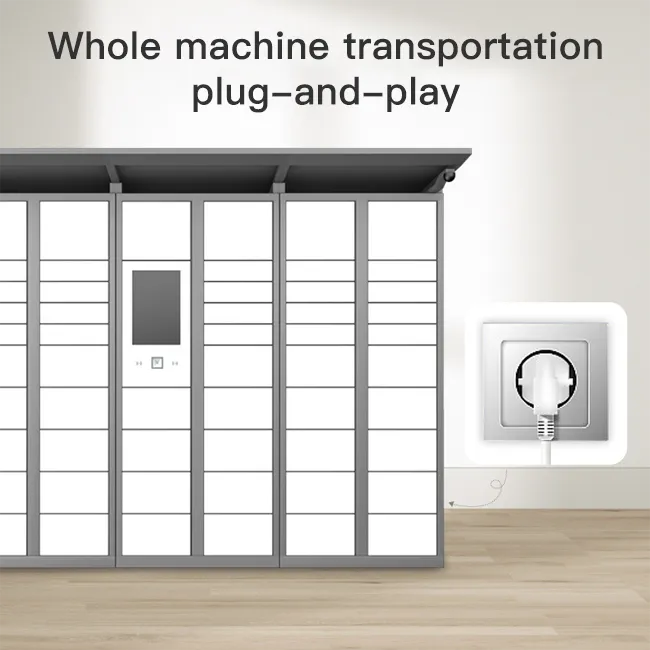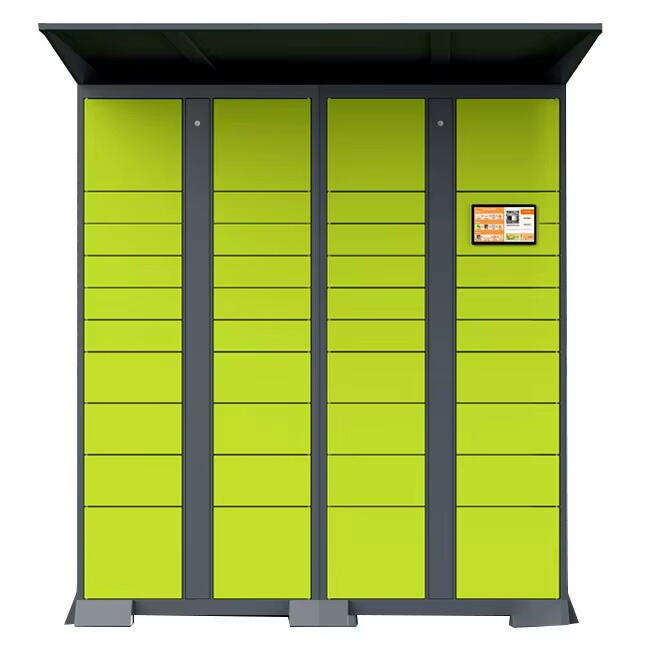Didėjantis išmaniųjų spynų vaidmuo modernioje saugumo sistemoje
Pastaraisiais metais, Inteligentiniai užrakinimai tapo būtinomis priemonėmis namams, biurams ir verslams, kurie vertina patogumą ir geresnį saugumą. Skirtingai nuo tradicinių spynų, reikalaujančių raktų, šios elektroninės sistemos leidžia vartotojams atrakinti duris naudojant skaitmeninius kodus, mobiliąsias programas ar net biometrinius duomenis. Išmaniosios spynos užtikrina tiek saugumą, tiek lankstumą, suteikdamos nekilnojamojo turto savininkams kontrolę virš to, kas įeina į jų erdvę ir kada. Dėl vis didesnio poreikio efektyviems ir saugiems sprendimams, išmaniosios spynos greitai iš siauros rinkos paslaugų pREKĖS tapo masinės paklausos būtinybėmis.
Mygtukų plokštelės ir PIN kodu paremtos išmaniosios spynos
Patogus prieiga per saugius kodus
Viena iš dažniausiai naudojamų „Smart Lock“ rūšių remiasi mygtukais ir PIN kodais. Šie modeliai leidžia vartotojams įvesti skaitmeninį kodą, kad atrakintų duris. Jie yra idealūs šeimoms, biurams ar nuomos objektams, nes prieigos kodai gali būti dalijami be fizinio rakto perdavimo. Kodai taip pat gali būti lengvai pakeičiami, kad būtų išlaikytas saugumas. Naudojant PIN sistemą, vartotojams nereikia jaudintis dėl rakto praradimo ar pastovaus nešiojimosi.
Kelių vartotojų su unikaliais kodais valdymas
Mygtukiniai „Smart Lock“ ypač naudingi, kai prieiga reikalinga keliems vartotojams. Namų savininkai gali priskirti unikalias kodus šeimos nariams, valytojams ar svečiams, o verslo subjektai gali suteikti darbuotojams individualius prisijungimo duomenis. Tai palengvina prieigos stebėjimą ir kontrolę. Jei kodas pažeistas, jis gali būti nedelsiant ištrintas. Toks lankstumas parodo, kaip „Smart Lock“ sprendimai išeina už tradicinių užraktų sistemų ribų.
Bluetooth ir programėle valdomi „Smart Lock“
Išmaniojo telefono integracija šiuolaikiniam gyvenimui
Bluetooth sujungiamos išmaniosios spynos skirtos naudotojams, kurie nori valdyti prieigą per savo mobiliuosius telefonus. Kai tik jos susijungia su mobiliaja programa, šios spynos leidžia greitai pasiekti patalpas paprastu bakstelėjimu. Tiems, kurie pageidauja patogesnio naudojimo be rankų, artumo jutikliai automatiškai atrakina duris, kai naudotojai priartėja. Toks integracijos lygis puikiai tinka įprastiniam šiuolaikiniam gyvenimo būdui, kuriame mobusis telefonas jau valdo daug kasdienio gyvenimo aspektų.
Nuotolinė prieiga ir pranešimai
Kai kurios Bluetooth išmaniosios spynos siunčia pranešimus, kai spyna yra įjungiama arba kažkas bandomas gauti prieigą. Tai padeda namų savininkams žinoti, kada grįžta šeimos nariai arba kai kas nors bando patekti į vidų. Kartu su nuotoliniu valdymu per programas, naudotojai gali užrakinti ar atrakinti duris iš bet kurios vietos. Ši funkcija ypač naudinga dažnai keliaujantiems žmonėms arba tiems, kurie tvarko nuomos būstus.
Wi-Fi sujungiamos išmaniosios spynos
Nuotolinis valdymas iš bet kurios vietos
Wi-Fi prisijungimo galimybę turintys išmanieji spynos užtikrina aukščiausią ryšio lygį. Šios modelių versijos tiesiogiai jungiasi prie namų tinklų, suteikdamos naudotojams galimybę valdyti spynas bet kur esant interneto ryšiui. Dėka šios funkcijos, namų savininkai gali tikrinti durų būseną, nuotoliniu būdu užrakinti ar atrakinti ir suteikti prieigą realiu laiku. Wi-Fi išmaniosios spynos yra idealus pasirinkimas šeimoms, kurios teikia pirmenybę patogumui ir visiškam valdymui.
Integracija su intelligentiniu namų ekosistemos
Wi-Fi išmaniosios spynos dažnai suderinamos su išmanaus namo platformomis, tokiomis kaip Alexa, Google Home arba Apple HomeKit. Tai leidžia naudotojams valdyti spinas balsiniais įsakymais arba automatu priderinti jas prie kitų išmaniųjų prietaisų. Pavyzdžiui, durys gali automatiškai užsirakinti, kai išjungiama šviesa arba įjungiama saugumo sistema. Ryšio ir automatizacijos derinys atskleidžia išmaniųjų spynų universalumą šiuolaikiniuose namuose.

Biometrinės ir pirštų atspaudų išmaniosios spynos
Aukštas saugos lygis su unikaliais identifikatoriais
Biometrinės išmaniosios spynos naudoja pirštų atspaudus ar kitus biometrinius identifikatorius, kad suteiktų prieigą. Kadangi pirštų atspaudai yra unikalūs, šios spynos užtikrina aukštą saugumo ir tikslumo lygį. Jos ypač naudingos šeimoms su vaikais arba darbo vietoms, kur reikalingas griežtas prieigos kontrolės lygis. Skirtingai nei raktai ar kodai, pirštų atspaudų negalima prarasti ar pamiršti, todėl biometrinės išmaniosios spynos yra tiek saugios, tiek patogios.
Kelių pirštų atspaudų saugojimas ir valdymas
Dauguma biometrinių išmaniųjų spynų gali saugoti dešimtis pirštų atspaudų, leisdamos keliems vartotojams pasiekti patalpą. Kiekvienas vartotojas gali būti pridėtas ar pašalintas pagal poreikį, užtikrindamas lankstumą keičiantis šeimoms ar darbo vietoms. Galimybė valdyti prieigą tiesiogiai per pirštų atspaudus pašalina poreikį naudoti fiziniais raktus ar sudėtingą kodų valdymą, dar labiau supaprastindama kasdienį saugumą.
Hibridinės išmaniosios spynos su keliais prieigos variantais
Kodų, programėlių ir biometrijos derinimas
Kai kurie išmanieji spynos sujungia kelias prieigos metodus į vieną sistemą. Šios hibridinės modeliai gali apimti mygtukų laukelį, mobiliąją programėlę ir pirštų atspaudų skaitymą. Siūlydami kelias prieigos parinktis, jie užtikrina lankstumą skirtingiems vartotojams ir situacijoms. Pavyzdžiui, šeimos nariai gali teikti pirmenybę pirštų atspaudų naudojimui, o svečiams gali būti suteikiami laikini kodai.
Atsarginiai sprendimai patikimumui
Hibridiniai išmanieji spynai dažnai yra aprūpinti mechaniniais rakteliais kaip atsarginiu variantu, jei išsikrauna baterijos arba kyla ryšio problemų. Tai užtikrina, kad vartotojai niekada visiškai nebūtų užrakinti. Sujungdami šiuolaikinę technologiją su tradiciniu patikimumu, hibridinės sistemos atspindi pusiausvyrą tarp inovacijų ir praktiškumo.
Išmanieji spynai kaip praktinė saugumo investicija
Laiko taupymas ir patogumo pridėjimas
Išmaniųsias spynos supaprastina kasdienius veiksmus, pašalinant būtinybę nešiotis fiziniai raktai. Šeimoms tai sumažina raktų praradimo riziką. Verslui tai supaprastina prieigos valdymą ir mažina spynų perkodavimo išlaidas. Automatizuojant prieigą, išmaniųsios spynos sutaupo laiko ir pastangų kasdieniame gyvenime.
Pasitikėjimo statymas asmeninėse ir profesinėse erdvėse
Daugiau nei tik įrankiai, išmičiosios spynos simbolizuoja įsipareigojimą šiuolaikinei saugai. Jos nuramina namų savininkus, nuomininkus ir darbuotojus, kad sauga yra prioritetinė. Tie patys sistemos tiek asmeninėse, tiek profesinėse aplinkose sukuria ramybę ir gerina bendrą saugą. Daugeliui išmaniosios spynos reiškia ne tik patogumą, bet ir pasitikėjimą.
Dažniausiai užduodami klausimai
Kokie yra pagrindiniai esamų išmaniųjų spynų tipai
Dažniausi tipai yra mygtukinės išmaniosios spynos, Bluetooth technologija naudojančios spynos, Wi-Fi išmaniosios spynos, biometrinės spynos ir hibridiniai modeliai, kurie derina kelias metodus. Kiekvienas tipas siūlo unikalius pranašumus, priklausomai nuo vartotojo poreikių.
Kaip išmaniųjų spynų saugumas pagerinamas lyginant su tradicinėmis spynomis
Išmintingos spynos siūlo tokių funkcijų kaip nuotolinis priėjimas, biometrinė identifikacija ir realaus laiko pranešimai. Šios galimybės palengvina prieigos kontrolę ir stebėjimą, sumažindamos rizikas, susijusias su prarastais rakteliais ar neautorizuotu įėjimu.
Ar išmintingos spynos tinka tiek verslui, tiek namams
Taip, išmintingos spynos plačiai naudojamos biuruose, nuomos būstuose ir komercinėse patalpose. Jos supaprastina prieigos valdymą, padidina saugumą ir suteikia lankstumo keliems vartotojams.
Ar išmintingos spynos vis dar veikia, jei dingsta elektra arba Wi-Fi
Dauguma išmintingų spynų turi atsarginio pobūdžio funkcijas, tokias kaip mechaniniai rakteliai, Bluetooth priėjimas arba baterijos maitinimas. Šios parinktys užtikrina, kad vartotojai nebūtų užrakinti atveju, jei kiltų ryšio ar elektros problemų.
Turinio lentelė
- Didėjantis išmaniųjų spynų vaidmuo modernioje saugumo sistemoje
- Mygtukų plokštelės ir PIN kodu paremtos išmaniosios spynos
- Bluetooth ir programėle valdomi „Smart Lock“
- Wi-Fi sujungiamos išmaniosios spynos
- Biometrinės ir pirštų atspaudų išmaniosios spynos
- Hibridinės išmaniosios spynos su keliais prieigos variantais
- Išmanieji spynai kaip praktinė saugumo investicija
- Dažniausiai užduodami klausimai
